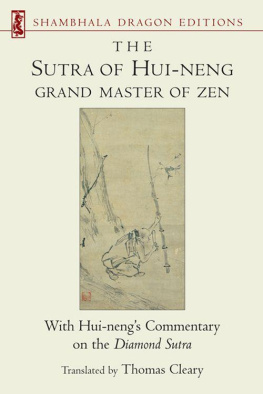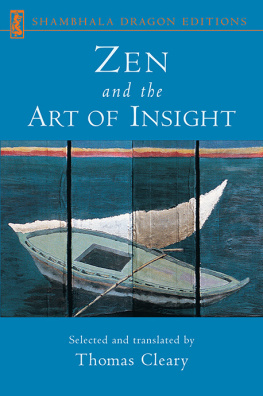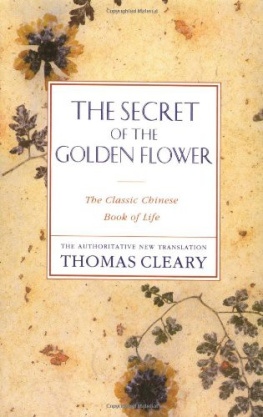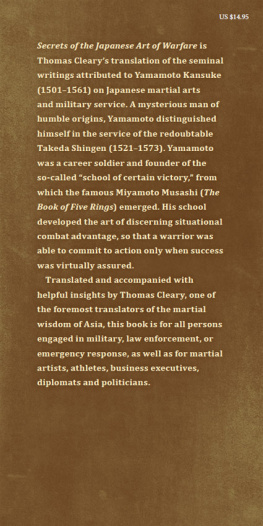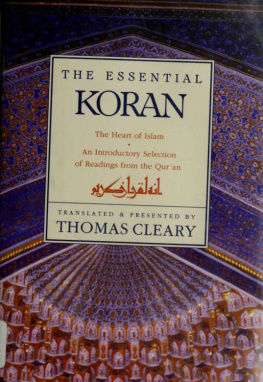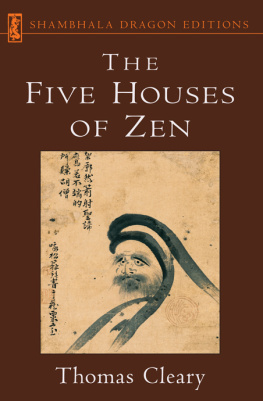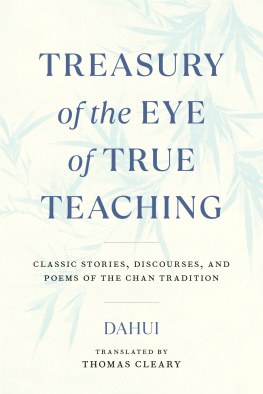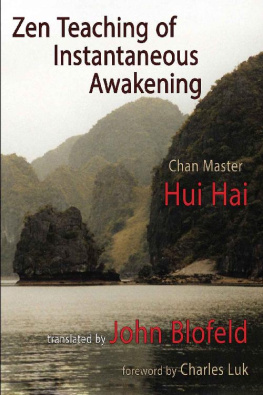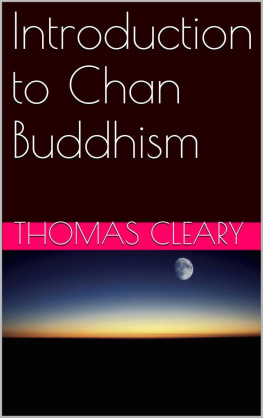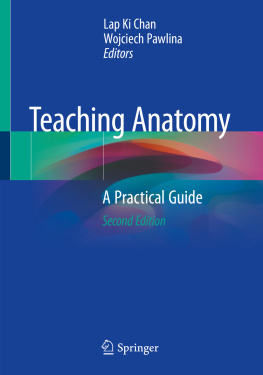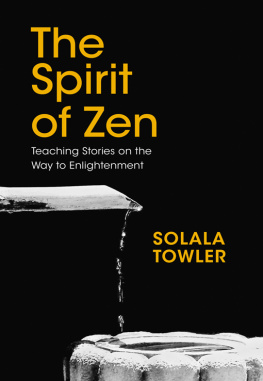Thomas Cleary - Treasury of the Eye of True Teaching
Here you can read online Thomas Cleary - Treasury of the Eye of True Teaching full text of the book (entire story) in english for free. Download pdf and epub, get meaning, cover and reviews about this ebook. year: 2017, genre: Religion. Description of the work, (preface) as well as reviews are available. Best literature library LitArk.com created for fans of good reading and offers a wide selection of genres:
Romance novel
Science fiction
Adventure
Detective
Science
History
Home and family
Prose
Art
Politics
Computer
Non-fiction
Religion
Business
Children
Humor
Choose a favorite category and find really read worthwhile books. Enjoy immersion in the world of imagination, feel the emotions of the characters or learn something new for yourself, make an fascinating discovery.

- Book:Treasury of the Eye of True Teaching
- Author:
- Genre:
- Year:2017
- Rating:4 / 5
- Favourites:Add to favourites
- Your mark:
- 80
- 1
- 2
- 3
- 4
- 5
Treasury of the Eye of True Teaching: summary, description and annotation
We offer to read an annotation, description, summary or preface (depends on what the author of the book "Treasury of the Eye of True Teaching" wrote himself). If you haven't found the necessary information about the book — write in the comments, we will try to find it.
Treasury of the Eye of True Teaching — read online for free the complete book (whole text) full work
Below is the text of the book, divided by pages. System saving the place of the last page read, allows you to conveniently read the book "Treasury of the Eye of True Teaching" online for free, without having to search again every time where you left off. Put a bookmark, and you can go to the page where you finished reading at any time.
Font size:
Interval:
Bookmark:
Treasury of the Eye of True Teaching
Volume I
Translated by Thomas Cleary
Thomas Cleary 2017
Translators Introduction
Treasury of the Eye of True Teaching is a classic of Chan Buddhism, a massive compilation of speeches, stories, dialogues, poems, and commentaries extracted from Chan lore, representing teaching material used by the famous master Dahui (1089-1167).
Dahui was widely regarded as a major figure in the revitalization of Chan Buddhism during the Southern Song dynasty. After traveling around studying with a number of Chan masters, Dahui became a disciple and successor of Yuanwu, the author of the classic Blue Cliff Record. Dahui served as an attendant, assembly leader, secretary, and assistant teacher to Yuanwu, who impressed upon him the importance of using sayings and stories in the process of Chan meditation. Dahui became very famous, accorded imperial honors and installed as teaching master in a major monastery, where he attracted a following of more than seventeen hundred people. The record of his teachings was included in the Buddhist canon by imperial order a decade after his death.
Treasury of the Eye of True Teaching
- Master Langya asked Master Ju, Where have you just come from?
Master Ju said, From the riverlands.
Did you come by boat or by land?
By boat.
Wheres the boat?
Underfoot.
How do you utter an expression of not being on the road?
Ju rustled his seat cloth and said, Incompetent elders are extremely commonplace. Then he walked out.
Langya asked an attendant, Who was that?
Master Ju
Langya then went down to the transients hall and asked, Arent you senior Ju?
Ju shouted and asked, When did you go to Fenyang, Elder?
Langya said he went there at such and such a time. Ju remarked, I had already heard of you when I was still in the riverland; but it turns out that your perception is only like thishow could you be famous throughout the land?
Langya then bowed and said, Thanks.
Dahui commented,
The guest is the guest from start to finish, the host is the host from start to finish. These two great masters took turns as host and guest in this impromptu encounter, directly bringing to light the heart and marrow of Linji. If you have not thoroughly realized the grip of transcendence and are not equipped with true perception beyond ordinary sense, you will inevitably construe this in terms of winning and losing.
Some say Ju responded truthfully to each question all along, but at the end he shouldnt have made a Buddhist rationale, and this was his incompetence.
Some say Langya became doubtful and uncertain at heart when he was called an incompetent by Master Ju, so he immediately lay down his weapons, took off his armor, and actually importuned Master Ju to stay so he could question him about this matter, in what they call sitting inquiry.
When one dog barks at nothing, a thousand monkeys bite in actuality. Because religious leaders do not have clear insight, they originate sectarian doctrines, confusing and misleading people of later times. What they dont realize is that the two great masters stimulus and response were like the sun and moon shining in the sky.
Where dragons and elephants tread is not for lame donkeys and blind menhow could a frog in a well or a chicken in a pot know the vastness of the universe?
I once cited this story in an interview and asked the student, Do you agree with what Langya said?
No, he replied.
Why dont you agree?
One shouldnt make a Buddhist rationale.
I then cited the story of Yunmen asking Dongshan, Where have you come from? Dongshan said, Chadu. Yunmen asked, Where did you spend the smmer? Dongshan said, At Baoci in Hunan. Yunmen asked, When did you leave there? Dongshan said, August 25 th . Yunmen said, I forgive you a beating of three score strokes.
Do you agree with what Yunmen said, I asked the student.
Yes, the student replied.
Why do you agree?
Yunmen had no Buddhist rationale.
I said, The questions of the teachers were the same, and the answers of the students were the sameso why do you agree with one and not the other?
The student stood there thinking. I drove him out with a caning. I then called the student to come back for a minute; when he turned his head, I said, If you interpret it as a caning, you drag me down and youre blind yourself. The student thereupon bowed and said, Today Ive finally realized that the encounter of Langya and Master Ju cannot be fathomed by ordinary feelings.
I said, Look at this blind guy summing up arbitrarily, and again I drove him off with blows and shouts.
While I was in exile in Hengyang, I closed my door and retired, taking no interest in external affairs. From time to time patchrobed mendicants would ask for help, so I couldnt but answer them. The Chan men Zhongmi and Huiran took notes, which over time accumulated into a huge volume. They brought it to me and asked for a title, wishing to reveal it to later generations so that the treasury of the eye of true teaching of the Buddhas and Chan masters does not perish. So I entitled it Treasury of the Eye of True Teaching, and made the story of Langya the first chapter.
Thus there is no order of precedence in the adepts featured herein, nor division of sect; I have only taken their realizations of the handle of transcendence as capable of dissolving sticking points for people and untying bonds, just so they may have accurate perception.
________________________________________________________
Note
Dahui was defrocked and exiled from 1141 to 1155 through the machinations of a political opponent of one of Dahuis lay successors. He was in Hengyang during the first ten years of this period.
________________________________________________
2. Chan Master Yantou instructed an assembly,
For the universal principle, the subject of the source, you need to distinguish expressions. If you do not distinguish expressions, then it is impossible to understand sayings.
What are expressions?
When you dont think of anything at all, this is called expression of the absolute. It is also called dwelling at the peak, or attaining stabilization, or clarity, or wakefulness, or directness, or the time before Buddha is born, or becoming grounded. It is also called the time of being as is, or such a time.
When being as such, you equally break through all affirmation and negation: as soon as it is as such, then it is not so, immediately changing, round and round. If you do not see through this, as soon as someone sticks you in the eye youll stare one-eyed, like a slaughtered sheep that hasnt yet died.
The ancients said that it is not good to sink into oblivion; you must be fluid to attain realization. You switch immediately on contact; as soon as it is so, then its not soaffirmation and negation both shaved away, you naturally turn freely. What is before your eyes is naturally unveiled; sated and snoring, you dont know to reject, you dont know to bite.
Havent you read the saying that detachment from things is superior, while pursuing things is inferior? The moment you arouse the slightest sentiment, youve already fallen on the ground.
If you are a boar-biting hound, eyes blazing red, if someone asks you what Chan is you tell him to shut his shit-holethats having a lot of spunkand then you will know who is deep and who is shallow, with firm certainty.
You get to know this cat face; then you dont need to deliberately quantify it, you dont need to measure it.
Theres a kind of person who doesnt know how to turn when he bumps into something, just keeping at it like someone with diarrhea running to the toilet. As for people like this, there would be no crime in beating ten thousand of them to death.
Someone who is genuine will rise to a stimulus immediately, biting people right away, like a prickly porcupine. If you preen yourself while undisturbed, but then you holler in a rage when someone provokes you, how can you approach?
Next pageFont size:
Interval:
Bookmark:
Similar books «Treasury of the Eye of True Teaching»
Look at similar books to Treasury of the Eye of True Teaching. We have selected literature similar in name and meaning in the hope of providing readers with more options to find new, interesting, not yet read works.
Discussion, reviews of the book Treasury of the Eye of True Teaching and just readers' own opinions. Leave your comments, write what you think about the work, its meaning or the main characters. Specify what exactly you liked and what you didn't like, and why you think so.

